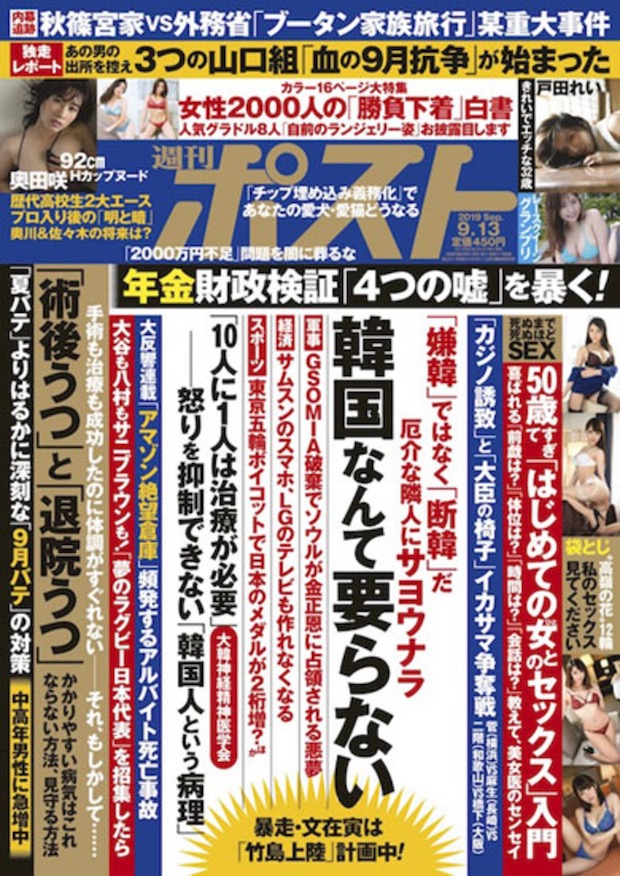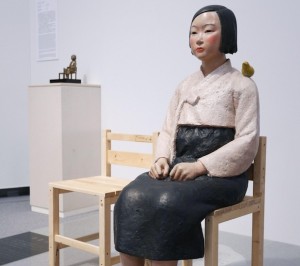As relations between Japan and South Korea continue to sour, resulting in a boycott of Japanese products and the cancellation of a major art exhibition, the latest issue of weekly magazine Shukan Post is stoking the tensions further with a provocative cover story called “We Don’t Need South Korea.”
The issue declares that Japan should bid farewell to its “irksome neighbor” and makes such claims as that 10% of South Koreans need medical treatment of anger issues. Online commentators were quick to condemn the magazine for spreading hate speech.
Though the magazine has since issued a public apology over the issue, which went on sale on September 2nd, outraged liberals and others are now calling for a boycott of Shogakukan, one of the biggest publishers in Japan. Some writers have also said they will no longer contribute articles to the magazine.

The real fallout is likely to be minimal, since magazines like Shukan Post are well used to pushing the envelope and thrive on scandal in one shape or other. The controversy is possibly giving the chief editors just what they wanted: a short-term sales boost that will please certain advertisers.
The weekly tabloid magazines are one of the most edgy and daring parts of the Japanese media, frequently running exposes and scoops on politicians and celebrities. Some titles are also, however, hotbeds of lazy speculation, nationalist sentiments, and titillation designed solely to shift copies.
It can backfire, though. The magazine Marco Polo suspended publication in 1995 after it ran a spurious issue about “fake” gas chambers in Auschwitz, provoking international outrage.
























